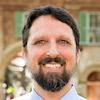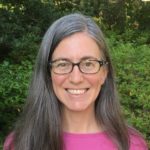
- This event has passed.
Workshop: Integrating Sustainability Literacy Across Your Curricula — Best Practices
This workshop is focused on equipping faculty across the curricula with best practices for embedding sustainability into their respective courses in a way that is engaging, transformative, and that supports existing course learning objectives. The workshop is based upon lessons learned at The College of Charleston (CofC) in Charleston, SC, where for four years faculty have engaged in a SACSCOC quality enhancement plan reaccreditation project, “Sustainability Literacy as a Bridge to Addressing 21st Century Problems.” This internally funded project is centered upon working with faculty to embed sustainability literacy into existing courses by providing ongoing trainings, workshops, and a year-long faculty cohort who work together on sharing best practices for teaching sustainability in a fall course, and then again in a spring course.
This workshop will present an overview of the project, it’s learning goals and outcomes, and an overview of assessment data (both qualitative and quantitative) from the project. Presenters will then work with those in the audience to:
- locate existing student learning objectives and help transition them to be sustainability focused
- dialogue about ways to present sustainability in an interdisciplinary way that also connects to a home discipline via effective sustainability teaching methods
- brainstorm capacity building opportunities to build faculty coalitions around embedding sustainability throughout the curricula.
Please note, this is not a nuts-and-bolts workshop on how to actually flip a course, but more of an overview for scholars new to sustainability and the teaching of it. If you are looking to infuse sustainability across the curriculum, please see Building a Curriculum Development Program for Your Institution: The Piedmont/Ponderosa Model.
Key Details
Registration Fees*
| Registration Type | Registration Fee |
| Individual (non-student) associated with an AASHE member organization* | $95 |
| Individual (non-student) not associated with an AASHE member organization | $125 |
| Student | $50 |
* To check if your organization is a current AASHE member, please search the AASHE Membership Directory.
Discounts are available for group registration. A limited number of scholarships are available to individuals who need financial assistance to participate. Please apply two weeks before the program begins (e.g., 4/4/2023) to be considered for a scholarship for this workshop.
Registration Policies:
- Registration deadline is Thursday, April 18, 12:00 p.m. ET.
- Payment is accepted in the form of Visa, MasterCard, American Express and Discover cards.
If you need to pay by check or ACH, please contact us at least 5 weeks prior to the event start date. Registration using these forms of payment must be received 4 weeks prior to the event start date and full payment must be received by AASHE within 2 weeks of event start date. - Cancellation Policy: A 20% processing fee applies to any cancellation prior to April 8, 2023. No refunds will be given after April 8, 2023.
- No substitutions are allowed.
- Registered participants will receive access to the recording after the live event.
- Review all Terms & Conditions.
Facilitators
Todd LeVasseur, Senior Instructor, Environmental and Sustainability Studies program, College of Charleston; Senior Lecturer, Environmental Studies, Yale National University Singapore College; ex-Director, Sustainability Literacy Institute, College of Charleston
 Dr. LeVasseur is Director of the Sustainability Literacy Institute and a Visiting Assistant Professor in the School of Humanities and Social Sciences at The College of Charleston and. He studies the interface of cultural narratives and identities, with a specific focus on those in the domain we label religion, and how these both shape and are shaped by the natural, “more-than-human” world. Since 2016, Dr. LeVasseur has directed The College of Charleston’s SACSCOC re-accreditation project, “Sustainability Literacy as a Bridge to Addressing 21st Century Problems.” This is a campus-wide effort to embed triple bottom line (social, environmental, economic systems) thinking across the curricula through a variety of programming and trainings. He is a member of the advisory council for the Sustainability Curriculum Consortium.
Dr. LeVasseur is Director of the Sustainability Literacy Institute and a Visiting Assistant Professor in the School of Humanities and Social Sciences at The College of Charleston and. He studies the interface of cultural narratives and identities, with a specific focus on those in the domain we label religion, and how these both shape and are shaped by the natural, “more-than-human” world. Since 2016, Dr. LeVasseur has directed The College of Charleston’s SACSCOC re-accreditation project, “Sustainability Literacy as a Bridge to Addressing 21st Century Problems.” This is a campus-wide effort to embed triple bottom line (social, environmental, economic systems) thinking across the curricula through a variety of programming and trainings. He is a member of the advisory council for the Sustainability Curriculum Consortium.
Katherine Mullaugh, Associate Professor, College of Charleston
 Dr. Mullaugh got her Ph.D. in analytical chemistry from the University of Delaware in 2009 and was a post-doc in the Marine and Atmospheric Chemistry Research Laboratory at the University of North Carolina Wilmington until 2012. After teaching for two years at Elon University, she joined the faculty of the Department of Chemistry & Biochemistry at the College of Charleston in 2014. She conducts research in the field of environmental nanotechnology, investigating both environmental risks and benefits that may arise from the rapidly growing field of nanotechnology. She publishes this work in peer-reviewed journals with undergraduate students as co-authors. Dr. Mullaugh currently teaches general chemistry, analytical chemistry and environmental chemistry.
Dr. Mullaugh got her Ph.D. in analytical chemistry from the University of Delaware in 2009 and was a post-doc in the Marine and Atmospheric Chemistry Research Laboratory at the University of North Carolina Wilmington until 2012. After teaching for two years at Elon University, she joined the faculty of the Department of Chemistry & Biochemistry at the College of Charleston in 2014. She conducts research in the field of environmental nanotechnology, investigating both environmental risks and benefits that may arise from the rapidly growing field of nanotechnology. She publishes this work in peer-reviewed journals with undergraduate students as co-authors. Dr. Mullaugh currently teaches general chemistry, analytical chemistry and environmental chemistry.
Meta Van Sickle, Professor, College of Charleston
 Dr. Van Sickle is a full professor at the College of Charleston. A teacher with over 30 years of experience, Meta earned her Ph.D. in Science Education at the University of South Florida in 1992. One of her recent publications is about talent development among young school aged children. She teaches this content and blends it with information about sustainability literacy in the science methods courses she teaches. She uses the model of the triple bottom line (TBL) and encourages her students to learn how to incorporate this information into their lesson plans. Blending talent and development and the TBL in course work for future teachers is her current passion.
Dr. Van Sickle is a full professor at the College of Charleston. A teacher with over 30 years of experience, Meta earned her Ph.D. in Science Education at the University of South Florida in 1992. One of her recent publications is about talent development among young school aged children. She teaches this content and blends it with information about sustainability literacy in the science methods courses she teaches. She uses the model of the triple bottom line (TBL) and encourages her students to learn how to incorporate this information into their lesson plans. Blending talent and development and the TBL in course work for future teachers is her current passion.
Allison Welch, Professor, College of Charleston
 Dr. Welch is an Associate Professor of Biology and Director of the undergraduate Environmental and Sustainability Studies (ENSS) program at the College of Charleston. In her work with the ENSS program, she has focused on curriculum development and expanding student opportunities to engage with sustainability inside and outside of the classroom. She teaches an introductory course in environmental and sustainability studies as well as infusing sustainability perspectives into her biology courses. Dr. Welch maintains an active research program investigating effects of climate change, environmental contaminants, and other stressors on amphibian behavior, reproduction, and life history. Before joining the faculty of the College of Charleston, Welch earned a PhD in Biological Sciences from the University of Missouri and completed a postdoctoral fellowship at the University of North Carolina.
Dr. Welch is an Associate Professor of Biology and Director of the undergraduate Environmental and Sustainability Studies (ENSS) program at the College of Charleston. In her work with the ENSS program, she has focused on curriculum development and expanding student opportunities to engage with sustainability inside and outside of the classroom. She teaches an introductory course in environmental and sustainability studies as well as infusing sustainability perspectives into her biology courses. Dr. Welch maintains an active research program investigating effects of climate change, environmental contaminants, and other stressors on amphibian behavior, reproduction, and life history. Before joining the faculty of the College of Charleston, Welch earned a PhD in Biological Sciences from the University of Missouri and completed a postdoctoral fellowship at the University of North Carolina.
Any questions about the workshop?
Please contact Daita Serghi, education@aashe.org